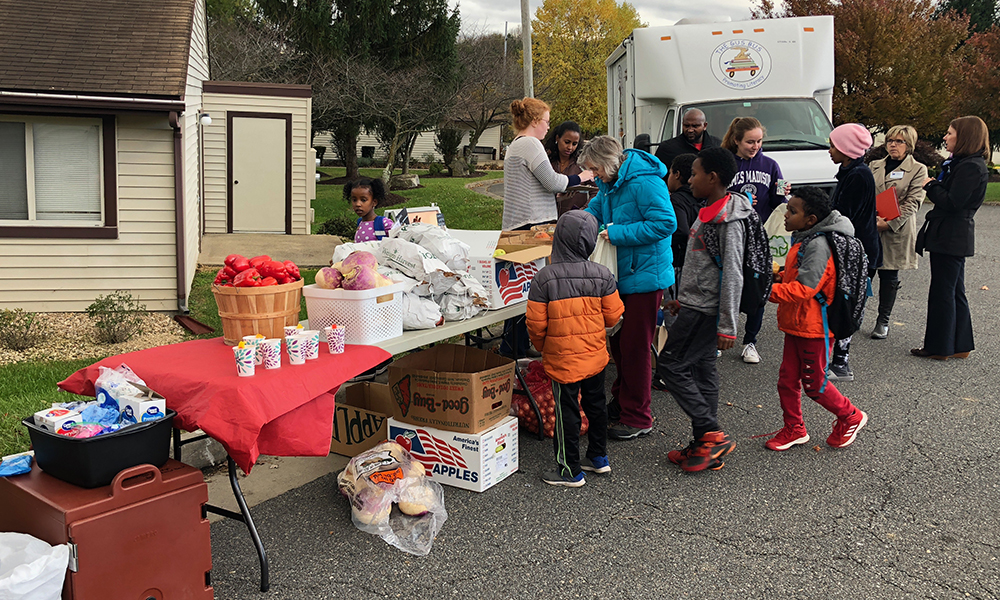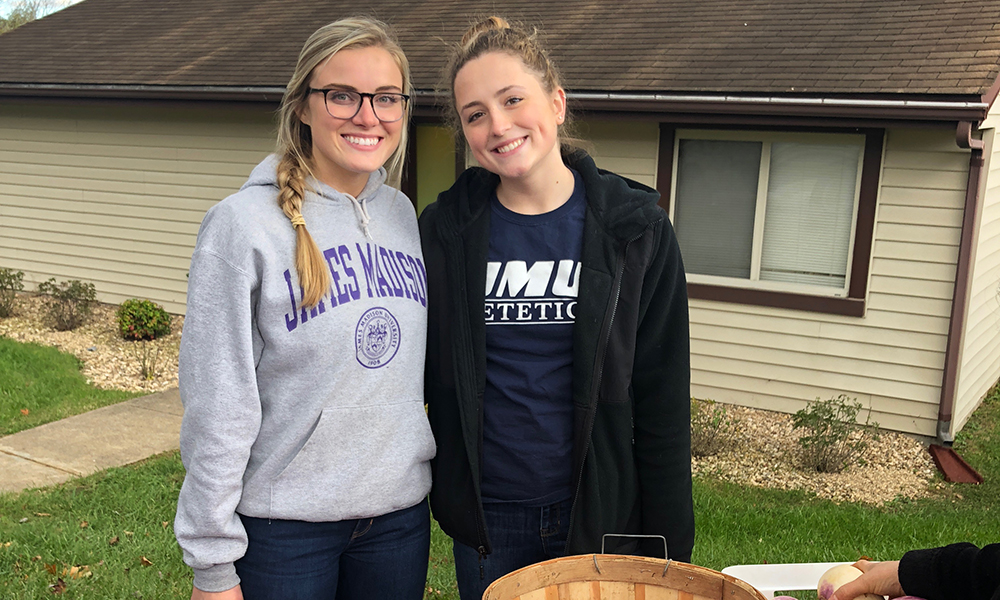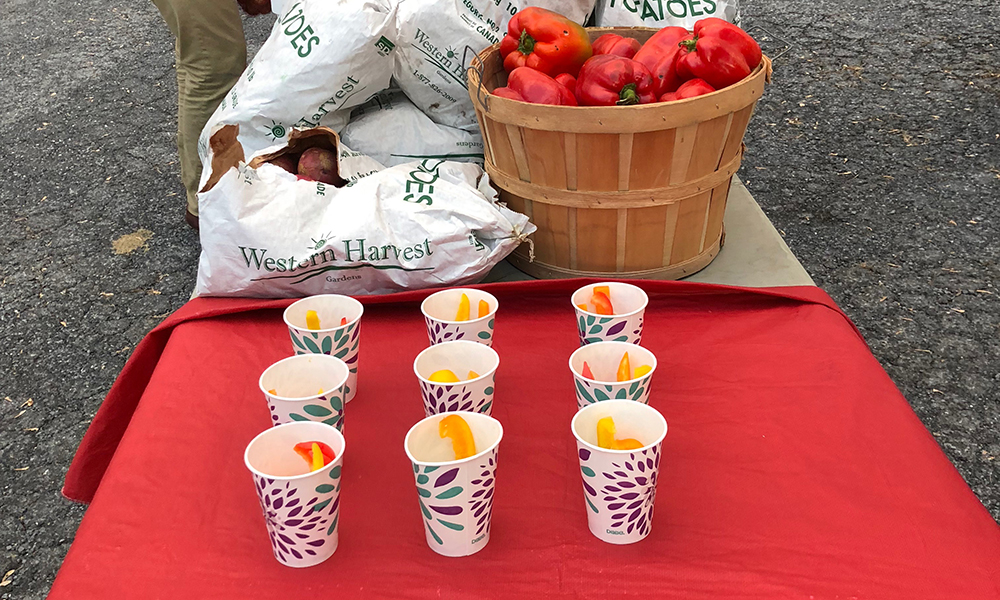Dietetics students create nutrition curriculum
NewsBy: Shannon Shevlin
Creative Services Student Writer

Being mindful about nutrition and food choices is essential to supporting wellness and leading a healthy life. However, challenges surrounding healthy eating can be powerful barriers. For dietetics seniors Kathleen Kraft and Alexandra Lepecha, minimizing the gaps in food education and access are important goals for promoting health in a community. As part of their senior capstone for the JMU Honors College, they created an innovative curriculum to expand awareness about healthy eating for Harrisonburg families. Through collaborative partnerships with the Blue Ridge Area Food Bank (BRAFB) and the Institute for Health and Human Services (IIHHS) Reading Road Show “Gus Bus”, Kraft and Lepecha’s curriculum will support healthy eating for at-risk children and families for years to come.
The Gus Bus is a mobile literacy program that brings literacy opportunities like free story time and book checkout to students in need. In addition, Gus Bus works collaboratively with BRAFB to distribute fresh food and groceries at each stop. However, instructors and volunteers grew concerned when they noticed families were not taking available food home. Gus Bus quickly learned this problem was informational as parents and children were unfamiliar with certain foods and unaware of how to prepare them.

Kathleen Kraft and Alexandra Lepecha
After learning about the issue from a professor, Lepecha and Kraft felt compelled to take action. They created an easy-to-use curriculum that contains the background and nutritional components for ten unique food items. Each is paired with a simple and easy-to-make recipe that encourages families to incorporate healthy ingredients and prepare meals together. In addition to the curriculum, they prepared food samples and demonstrations to share with families on-site. From recruiting and training volunteers to transporting ingredients and meals, Kraft and Lepecha were excited by the challenge of this project and the opportunity to support community health.
They recounted when they introduced spaghetti squash to the produce market. A large and bulky vegetable that comes in various colors, spaghetti squash is not a familiar food to many people. When cooked, the inside falls in strands that look like spaghetti, making it a healthy and delicious substitute for pasta. They channeled their passion for dietetics into teaching families about the nutritional benefits of spaghetti squash and sharing kid-friendly ways to prepare it.
They cooked and prepared samples at the Virginia Cooperative Extension ahead of time and handed out recipes on site that showed families how to cut, prepare, season and cook their spaghetti squash at home. Kraft said, “It was definitely the most popular sample. Each family took a spaghetti squash home which was great to see.” Lepecha agreed, “The kids were still talking about it at a visit over a month later,” she added, “They remembered us and were excited to learn about the other foods when they saw us again.”
The neighborhood produce markets were active April through October 2018 from 4-7 pm, making them ideal opportunities for families to incorporate fresh summer fruits and vegetables into their meals. The collaboration was made possible by contributions from partnering organizations, including Sentara RMH Medical Center, who provided space and resources to help maintain food safety.

For Lepecha and Kraft, making an impact, creating memories and strengthening relationships were some of the most valuable aspects of this project. Kraft expressed, “It was really rewarding to see people interested in food and wanting to make healthy choices.” She explained how passionate she is about issues surrounding food information, safety and education, and her work to improve health outcomes in the community. Lepecha agreed and articulated, “The curriculum and produce markets have been really beneficial but there is still more progress to be made,” she continued, “Harrisonburg is diverse in culture and language, so there are plenty of opportunities to improve and make it more effective for everyone.” While they are excited to graduate in May and advance this mission beyond JMU, Kraft and Lepecha are hopeful about improving the curriculum’s content for produce markets this spring. Both plan to pursue a career in dietetics upon graduation to continue helping others strengthen their health through nutrition.

